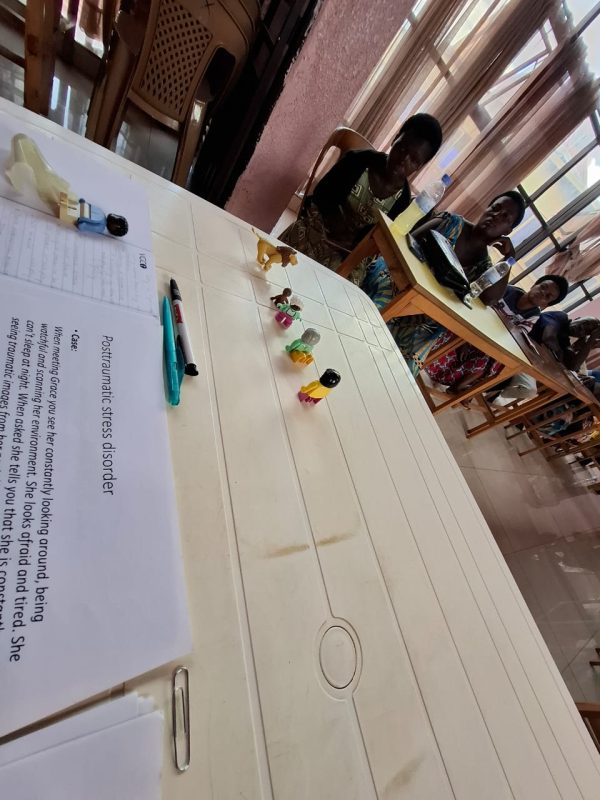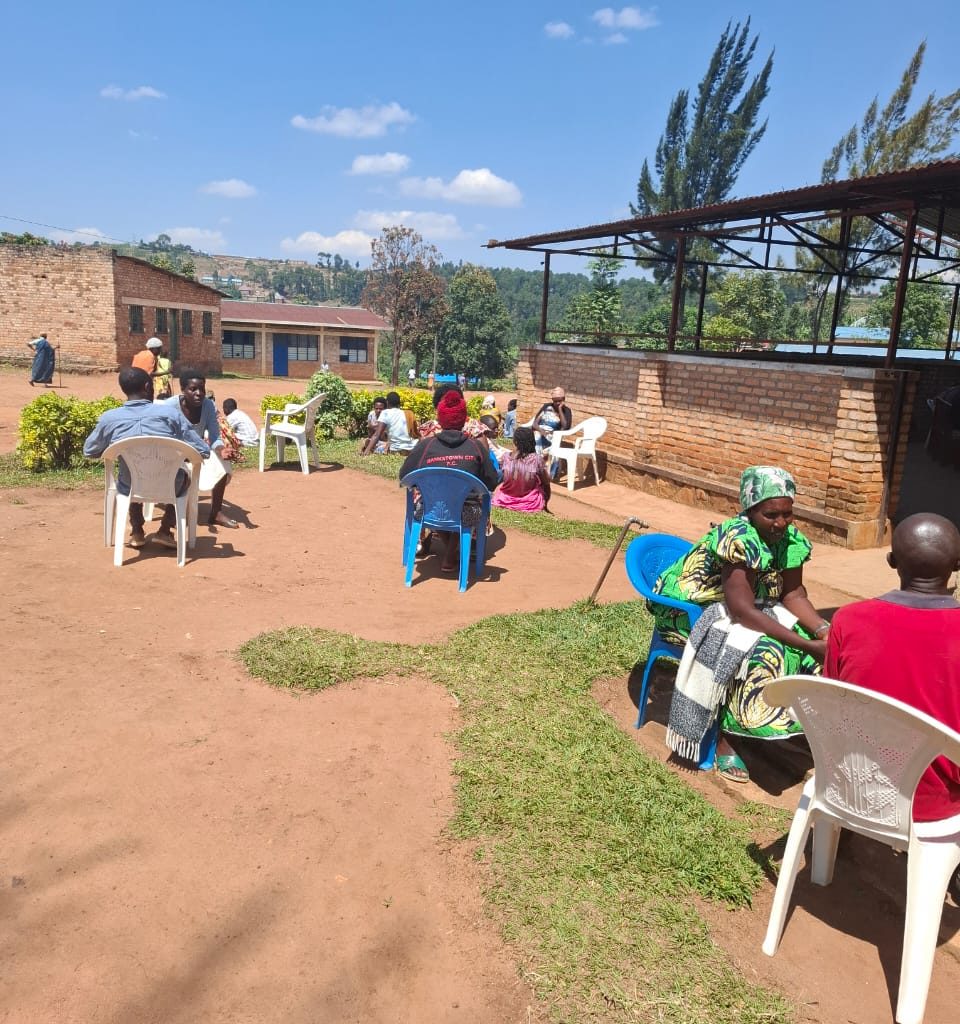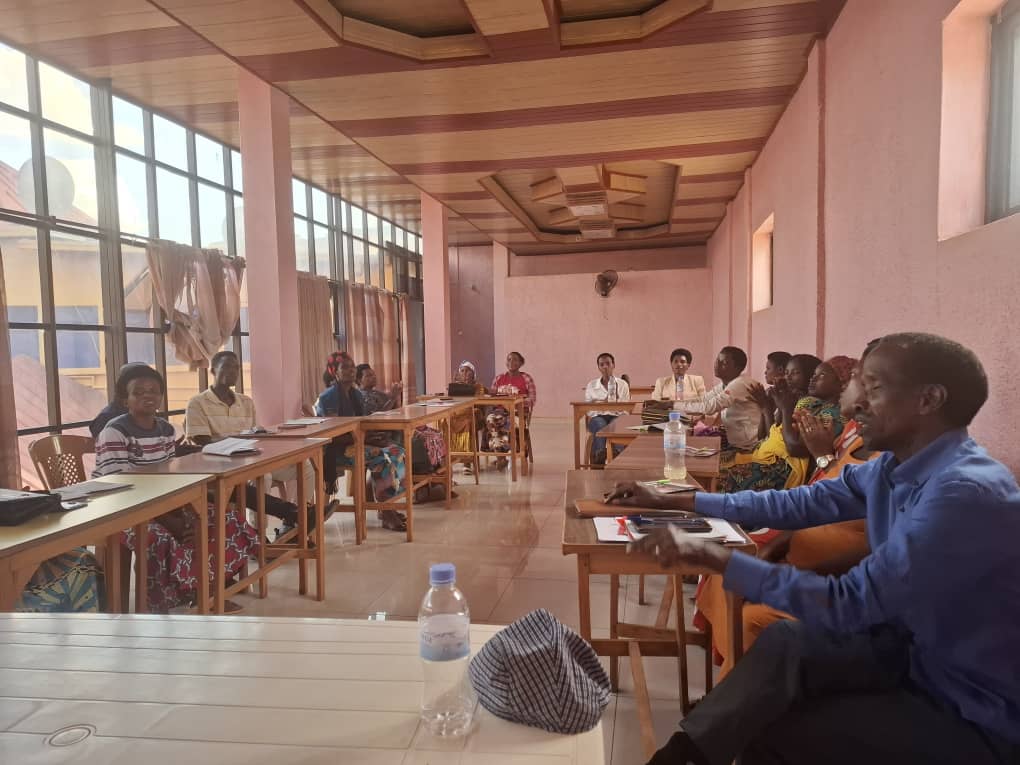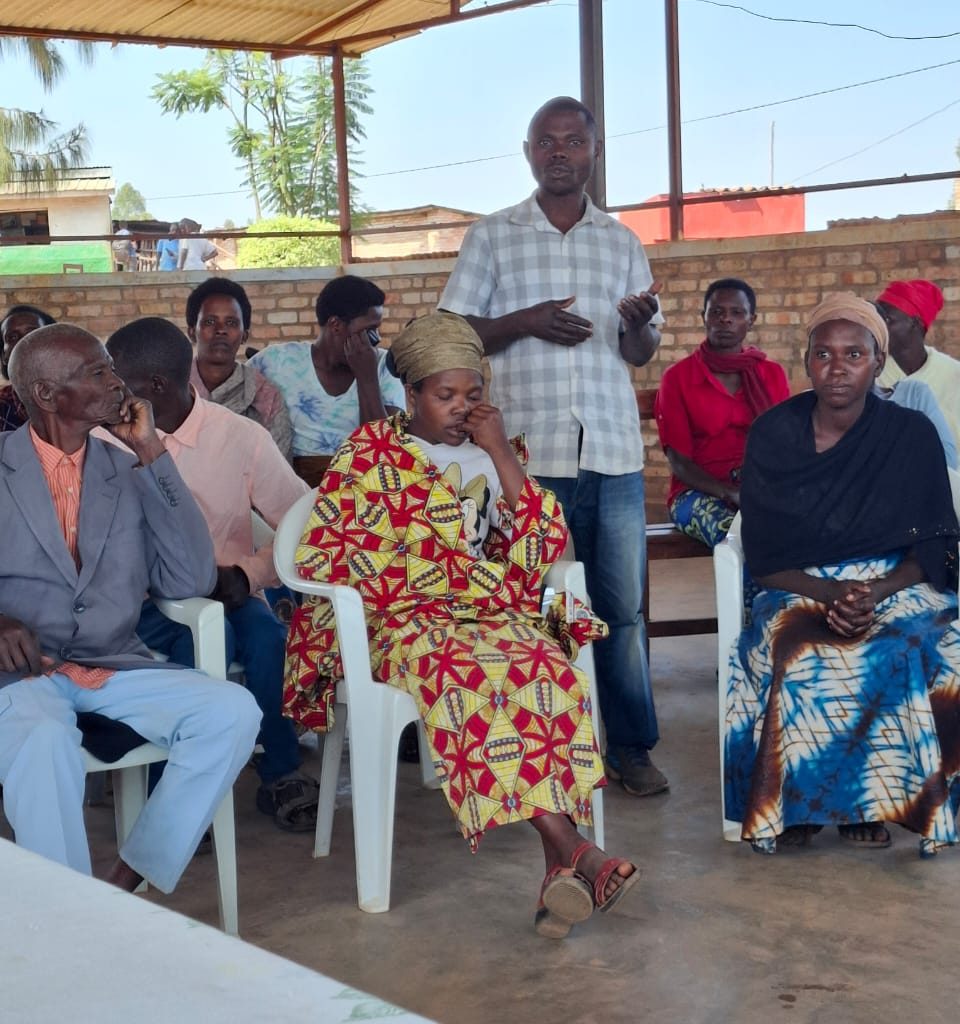Overview
In June 2025, A Cup for Humanity facilitated two trauma healing workshops in the Rwandan communities of Nyamata and Huye. The primary objective was to strengthen individual and collective capacities to cope with trauma related problems and equip participants to play active roles in community-based healing processes.
In addition to the training, A Cup for Humanity donated a sewing machine to the Nyamata community. This contribution is part of a broader strategy to integrate trauma healing with economic empowerment by supporting income-generating activities and enhancing community resilience.
Training Details

Preparation Time: Some weeks prior to the events preparation tasks were completed including material preparation, coordination with local partners, logistical arrangements, meetings etc.
Participants:
Nyamata: 20 participants
Huye: 28 participants
Duration:
Nyamata: 4 days
Huye: 1 day
Topics Covered
Active Listening Skills: Participants were introduced to the principles and techniques of active listening, with a focus on empathy, non-judgmental presence, and attentiveness. Through guided exercises and role-play, they learned how to create safe and supportive environments for individuals sharing traumatic experiences—an essential skill for community-based healing and peer support.

Posttraumatic Stress
The session aimed to increase awareness, reduce stigma, and promote supportive responses to those affected. During this session, participants were introduced to the key symptoms and effects of posttraumatic stress with particular attention to how it manifests in daily life. They reflected on personal or observed experiences within their communities and discussed coping strategies.
Introduction to Narrative Exposure Therapy: Participants were introduced to the main principles of Narrative Exposure Therapy (NET), a therapeutic approach designed to help individuals construct a coherent chronological life narrative that helps them to process traumatic and good life experiences. The session emphasized the therapeutic value of storytelling in trauma recovery and encouraged participants to reflect on how personal and collective narratives can support healing and resilience.
Headache Relief Exercises: Participants were shown how to apply simple massage techniques involving the neck, shoulders, and head to relieve tension and reduce the frequency and intensity of headaches. The session also emphasized the connection between stress, muscle tension, and headaches, and provided practical guidance on how these self-care exercises can be integrated into daily routines to promote relaxation and overall well-being.
Hydration Awareness: The sessions emphasized the critical role of adequate hydration. specifically, the importance of consuming at least three litres of clean water per day which will help to maintain overall health and preventing recurrent migraines. Participants were encouraged to adopt consistent hydration habits as part of a broader strategy for physical well-being.
Sexual Violence and Survivor Support: This session focused on the physical and emotional healing of survivors of sexual violence, with particular attention to the body’s natural ability to renew and regenerate cells over time. The session emphasized that while trauma may leave lasting effects, the body’s capacity to heal can serve as a powerful reminder of resilience and renewal. Discussions also addressed the importance of safe spaces, access to care, and community-based support systems in the recovery process.
Methodology

The workshops employed a dialogue-lecture approach, encouraging participants to share personal and communal traumatic experiences in a safe, supportive space.
Activities included:
- Life storytelling sessions with visual aids (e.g., dolls for illustration)
- Group prayers, singing, and dance as forms of expression and emotional release
- Interactive games to build trust and resilience
- Practical demonstrations of self-care techniques
This approach fostered both individual healing and collective solidarity.
Feedback & Impact

Testimony 1.
“After attending the trauma healing training last year, I was able to support a friend who was on the verge of committing suicide due to a serious marital crisis. She was preparing to leave the home with the intention of ending her life. Drawing on what I learned about Narrative Exposure Therapy, I gently guided her to focus on positive memories. Specifically, I encouraged her to think about flowers which symbolise good memories in her life story. This simple but powerful exercise helped shift her focus away from despair. In the end, she chose not to go through with the suicide. Today, she is stable and remains at home, continuing her healing journey.”
Testimony 2.
“This is the first time in my entire life that I have had the opportunity to sit down and be truly listened to by someone. The experience has left me feeling deeply uplifted. It has given me a renewed sense of hope and a fresh perspective on life.”
Testimony 3
“Before I attended the previous training, I was struggling with depression, loneliness, and a deep sense of mistrust toward others. I felt isolated and unable to share what I was going through. However, after participating in the training, I gradually began to open up, connect with others, and share my concerns. I have learned to trust people again, and as a result, I feel much better—more supported, understood, and emotionally stable than before.”
Testimony 4:
“I used to have a difficult relationship with my husband and children. Communication at home was strained, and there was a lot of tension. However, after attending the training, I began practicing active listening, offering compliments, and maintaining a more positive attitude. These small changes made a big difference. Today, our home environment has improved dramatically. We are more connected, and we enjoy a happy, supportive family life.”
Testimony 5:
“When I attended the previous training, I was overwhelmed with depression and often in tears. I was facing serious challenges in my marriage and felt emotionally drained. However, the training helped me shift my perspective. I began offering my husband genuine compliments and kindness and to my surprise, he responded with the same. As a result, our relationship has been completely renewed. It feels like we are experiencing a second honeymoon, and our marriage is now more stable and loving than ever before.”
Testimony 6:
“I had been suffering from chronic headaches since the age of eight. Despite taking many painkillers over the years, the headaches kept returning. However, after learning and consistently applying the headache relief techniques taught during the training—particularly the massage exercises. I have experienced complete relief. For the first time in years, I feel free from the pain.”
Testimony 7:
“I have a friend whose brother passed away recently. The grief was so overwhelming that he stopped going to school. Drawing on the skills I learned from the training, I reached out to him, offered emotional support, and helped him process his loss. Through regular conversations and encouragement, he gradually began to heal. I’m happy to share that he is now back in school and moving forward with his life.”
Community Integration of our Program
Pastor Janvier provided valuable feedback, particularly regarding the reproductive health component, noting its relevance and the ongoing use of workshop materials by local government officials and community leaders for peer education.
Conclusion
The Trauma Healing Workshops in 2025 reaffirmed the importance of contextualised, participatory healing practices in post-genocide Rwanda. They also highlighted the ripple effect—participants becoming facilitators of healing within their circles. With growing demand and demonstrated impact, there is a strong case for scaling this work further across communities in need.



Add a Comment